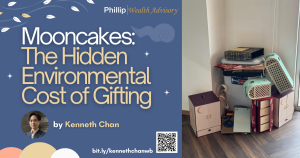The Employer’s Guide to Domestic Helper Insurance September 2, 2025

Domestic Helper insurance may appear to be just another compliance task for employers in Singapore, but in reality, it plays a critical role in protecting both the employer and the domestic helper. The right domestic helper insurance plan could protect you from unforeseen costs and ensure your helper is well cared for in times of need.
With the enhancements to coverage requirements effective from 1 July 2025, protection is now stronger and fairer. Employers willing to invest a little more can often secure a policy that rivals local hospitalisation plans. Hence, there’s now a greater need for employers to understand what they are purchasing and how to choose a plan that truly meets their household’s needs, instead of just fulfilling legal obligations.
1. What is Domestic Helper Insurance?
Domestic Helper insurance (also known as Maid or Migrant Domestic Worker (MDW) Insurance) is a mandatory policy that covers medical, accident, and liability risks associated with hiring a helper. Under Singapore’s Ministry of Manpower (MOM) regulations, every employer must purchase insurance before the helper commences work.
Domestic Helper Insurance protects both the employer (against financial liability) and the domestic helper (through accident and health coverage). Without it, employers may bear the full cost of unexpected medical bills, repatriation, or third-party liability.
MOM’s Mandatory Requirements:
- Medical Insurance: At least S$60,000/year (covering inpatient care & day surgery)
- Personal Accident Coverage: At least S$60,000 in the event of accidental death or total permanent disability
- Security Bond[1]: A S$5,000 bond for non-Malaysian MDWs
MOM’s Rules:
- Insurance must be in place before the helper commences work or before the renewal of work permit
- Employers who fail to do so may face penalties, revocation of work permits, and blacklisting
2. Why is Domestic Helper Insurance Important?
For Financial Protection
Unexpected events such as accidents, surgeries, or medical conditions can cost thousands of dollars. Repatriation for a critically ill or injured helper is often also costly. Insurance shields you from such sudden and significant financial burdens.
For Peace of Mind
Employers are legally liable for their MDWs. Having proper insurance reduces both legal and financial risk, allowing employers to focus on their families and work, knowing that their helper’s medical and emergency needs are covered when required.
3. Why is the Domestic Helper Insurance either a 14 or 26 Month Plan?
Domestic Helper Insurance plans are issued for either 14 or 26 months, rather than 12 or 24 months. MOM requires an additional 2 months of coverage (at no extra charge) to ensure your MDW remains insured after the work permit expires, in case repatriation is delayed.
Most plans also offer a letter of guarantee for the mandatory S$5,000 security bond, as required by the MOM, for non-Malaysian MDWs.
4. What is a Security Bond & Waiver Option?
Employers are also required to post a $5,000 security bond (for non-Malaysian MDWs) as a financial guarantee to MOM. However, many insurance plans include an optional waiver of indemnity, meaning that if the bond is forfeited due to unforeseen circumstances (e.g., the helper runs away), the insurer will cover the cost up to the stated amount, provided the employer has not breached any conditions.
This is an important detail that many employers overlook, and opting for a plan that includes a bond waiver can prevent significant out-of-pocket losses.
5. What does the Domestic Helper Insurance Typically cover?
To name some:
| Coverage | What It Includes |
| Hospital & Surgical Expenses2 |
|
| Personal Accident |
|
| Repatriation Expenses |
|
| Personal Accident |
|
| Third-Party Liability |
|
| Re-hiring Expenses |
|
| Accident Medical Reimbursement |
|
6. Should employers opt for only S$60,000 or more?
Although S$60,000 is the current legal minimum for medical coverage, employers should consider whether this amount is sufficient. A single hospitalisation involving surgery, ICU care, or an extended stay could easily exceed this amount. Choosing a plan with higher limits may provide better protection, particularly for households with elderly, young children, or dependents with complex needs.
7. How to choose the right Insurance Plan
Choosing the right domestic helper insurance depends on your risk profile, budget, and your helper’s role in the household.
Ask Yourself:
- Do you have elderly or children at home (This means a higher workload and risk, so you may want a plan with higher liability coverage and outpatient care benefits.)
- What is the medical coverage limit, and is it sufficient for your needs?
- Is ease of claim and a 24/7 hotline support important to you?
Key Factors to Compare:
- Hospital & Surgical Expenses coverage limits (e.g. $60k vs $120k)
- Outpatient care inclusion
- Accident medical reimbursement
- Co-payment terms
- Early termination or re-hiring benefits
- Online claims & emergency helplines
- Length of Stay: Choose longer coverage periods (e.g., 26 months instead of 14 months) to reduce renewal hassle
8. Is My Helper Covered During Holidays Back Home?
No. Domestic Helper Insurance only covers your helper while they are in Singapore. If they travel back home, it is advisable to purchase travel insurance for the duration of their trip.
9. Are Hospital Bills Settled Directly by the Insurer?
Yes. With the new regulations effective from 1 July 2025, insurers are required to make payments directly to hospitals. This spares employers from having to put up a large payment upfront if their domestic worker requires hospitalisation.
10. What Should Employers Know About the Letter of Guarantee (LOG)?
Some hospitals may require a deposit for your helper’s hospitalisation or emergency admission. Your insurer can issue a Letter of Guarantee (LOG) under policy conditions, including pro-ration and co-insurance. If provided, the insurer pays hospital expenses directly up to the LOG or policy limit. Employers are responsible for any amount not covered. If the deposit exceeds the LOG, employers may need to make a partial payment. Note: LOG applies to Singapore Public/Restructured Hospitals only. Its issuance doesn’t imply approval or admission of any claim under the policy, pending insurer assessment.
11. What are the Pros and Cons of Domestic Helper Insurance?
| Pros | Cons |
| Shields you from high medical bills | Some cheaper plans may exclude common treatments |
| Ensures compliance with MOM regulations | Limited coverage for pre-existing or mental health conditions |
| Covers wage loss, liability & repatriation | Co-payments and waiting periods may apply |
| Some include teleconsultation, no-claim bonuses, or digital platforms | Misunderstanding of exclusions may lead to rejected claims |
Conclusion: Protect Yourself and Your Helper
Domestic Helper Insurance is more than just a legal obligation—it’s a vital way to ensure you are prepared for unforeseen situations while treating your domestic helper fairly and responsibly. A thoughtful choice in policy will give you peace of mind and help you manage your responsibilities smoothly as an employer.
A basic plan is legal and sufficient – until something goes wrong. A comprehensive plan is strategic – it cushions you when something does. You don’t need to overpay, but don’t underinsure either. Compare wisely.
Need Help Choosing a Plan?
If you’re unsure which plan suits your needs, feel free to reach out to me for a complimentary consultation. I’ll help you choose a plan that best fits your budget and your household needs.
References:
- [1] If the security bond is not in effect when your helper arrives in Singapore, the immigration officer will not allow entry. You will have to send them home immediately.https://www.mom.gov.sg/passes-and-permits/work-permit-for-foreign-worker/sector-specific-rules/security-bond
- [2] 12-month waiting period for pre-existing conditions apply. Insurers are not required to pay for claims arising from pre-existing illnesses occurring within 12 months of working for the same employer. https://www.mom.gov.sg/-/media/mom/documents/work-passes-and-permits/standardised-allowable-exclusions-for-medical-insurers.pdf. Refer to Group C: Others (u).employer.
Contributor:

Sebastian Yeap
Financial Services Manager
Phillip Securities Pte Ltd (A member of PhillipCapital)
https://bit.ly/TTPsebastianyeap
Disclaimer
These commentaries are intended for general circulation and do not have regard to the specific investment objectives, financial situation and particular needs of any person. Accordingly, no warranty whatsoever is given and no liability whatsoever is accepted for any loss arising whether directly or indirectly as a result of any person acting based on this information. You should seek advice from a financial adviser regarding the suitability of any investment product(s) mentioned herein, taking into account your specific investment objectives, financial situation or particular needs, before making a commitment to invest in such products.
Opinions expressed in these commentaries are subject to change without notice. Investments are subject to investment risks including the possible loss of the principal amount invested. The value of units in any fund and the income from them may fall as well as rise. Past performance figures as well as any projection or forecast used in these commentaries are not necessarily indicative of future or likely performance.
Phillip Securities Pte Ltd (PSPL), its directors, connected persons or employees may from time to time have an interest in the financial instruments mentioned in these commentaries.
The information contained in these commentaries has been obtained from public sources which PSPL has no reason to believe are unreliable and any analysis, forecasts, projections, expectations and opinions (collectively the “Research”) contained in these commentaries are based on such information and are expressions of belief only. PSPL has not verified this information and no representation or warranty, express or implied, is made that such information or Research is accurate, complete or verified or should be relied upon as such. Any such information or Research contained in these commentaries are subject to change, and PSPL shall not have any responsibility to maintain the information or Research made available or to supply any corrections, updates or releases in connection therewith. In no event will PSPL be liable for any special, indirect, incidental or consequential damages which may be incurred from the use of the information or Research made available, even if it has been advised of the possibility of such damages. The companies and their employees mentioned in these commentaries cannot be held liable for any errors, inaccuracies and/or omissions howsoever caused. Any opinion or advice herein is made on a general basis and is subject to change without notice. The information provided in these commentaries may contain optimistic statements regarding future events or future financial performance of countries, markets or companies. You must make your own financial assessment of the relevance, accuracy and adequacy of the information provided in these commentaries.
Views and any strategies described in these commentaries may not be suitable for all investors. Opinions expressed herein may differ from the opinions expressed by other units of PSPL or its connected persons and associates. Any reference to or discussion of investment products or commodities in these commentaries is purely for illustrative purposes only and must not be construed as a recommendation, an offer or solicitation for the subscription, purchase or sale of the investment products or commodities mentioned.
This advertisement has not been reviewed by the Monetary Authority of Singapore.
About the author
Sebastian Yeap
Financial Services Manager
Phillip Securities Pte Ltd (A member of PhillipCapital)
Sebastian Yeap, a former RSAF Major, brings extensive leadership experience and strategic insight to the financial sector. His transition into financial advisory was fuelled by a passion for helping individuals and families achieve their financial goals.
With a strong belief that financial planning must be tailored to each client’s unique circumstances, Sebastian adopts a holistic and consultative approach by focusing on building lasting relationships, providing well-considered solutions, and guiding clients toward long-term financial independence.

 Protecting More Than Just Walls: Fire Insurance vs Home Insurance
Protecting More Than Just Walls: Fire Insurance vs Home Insurance  Before the Year Ends: Key Financial Steps for a Confident 2026
Before the Year Ends: Key Financial Steps for a Confident 2026  The ILP Debate: Why Singaporeans Struggle With Financial Product Decisions
The ILP Debate: Why Singaporeans Struggle With Financial Product Decisions  Mooncakes: The Hidden Environmental Cost of Gifting
Mooncakes: The Hidden Environmental Cost of Gifting 






